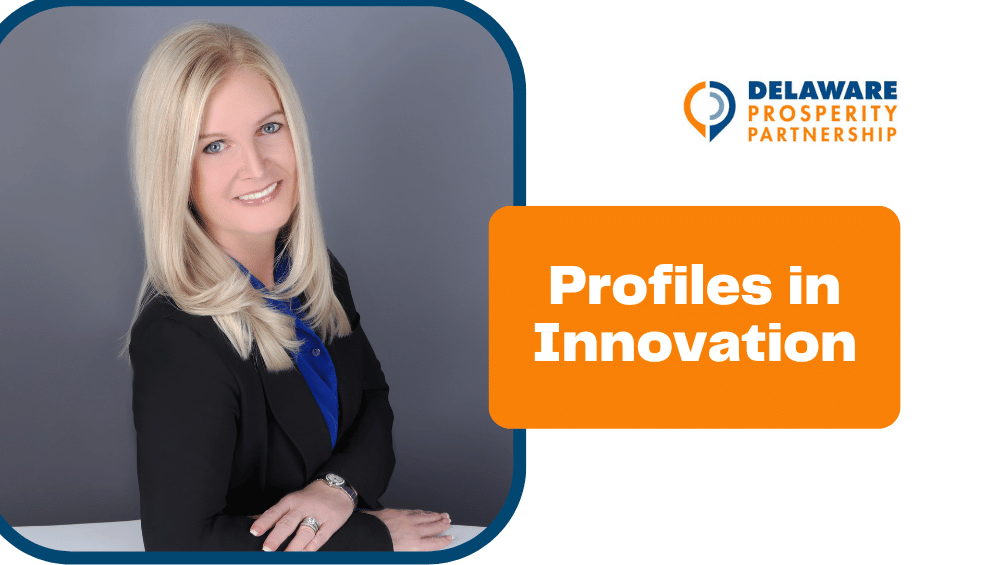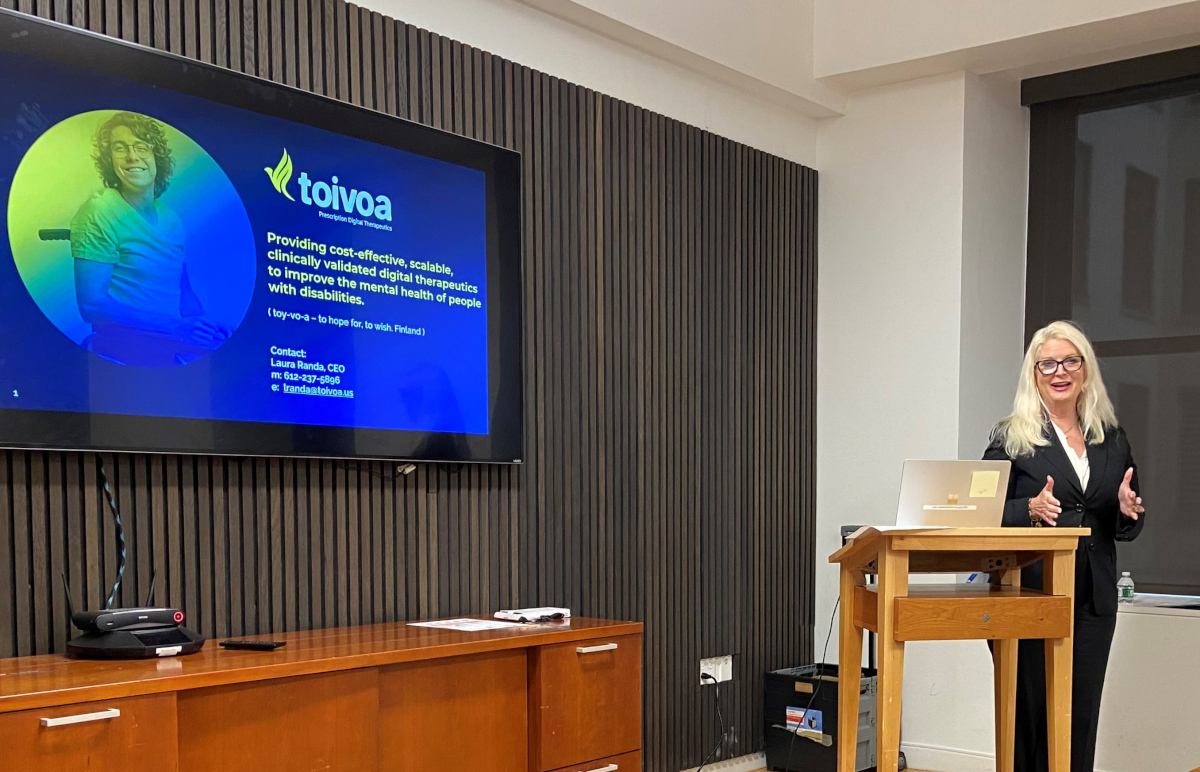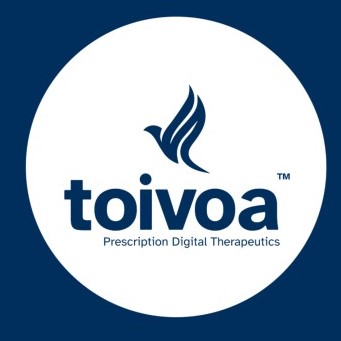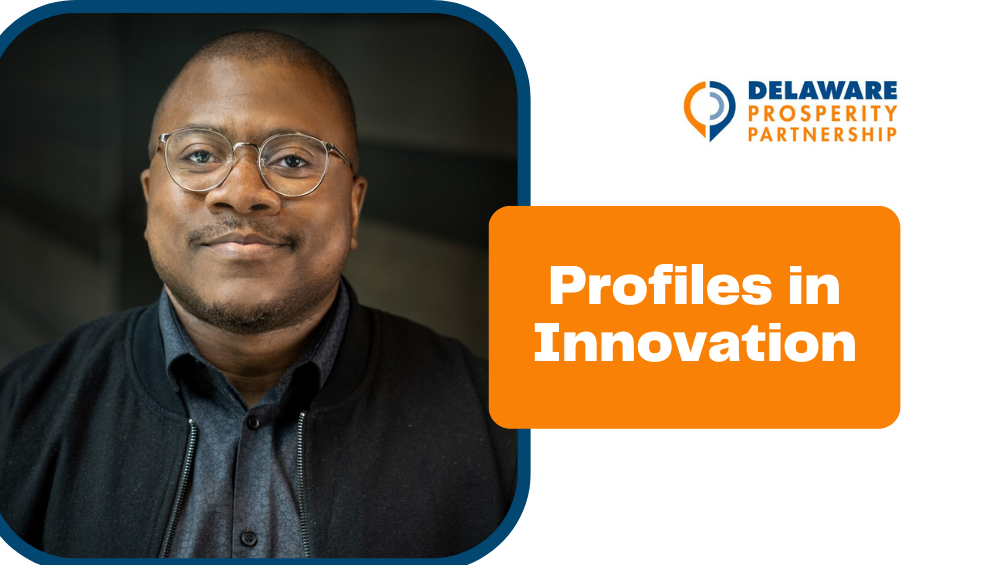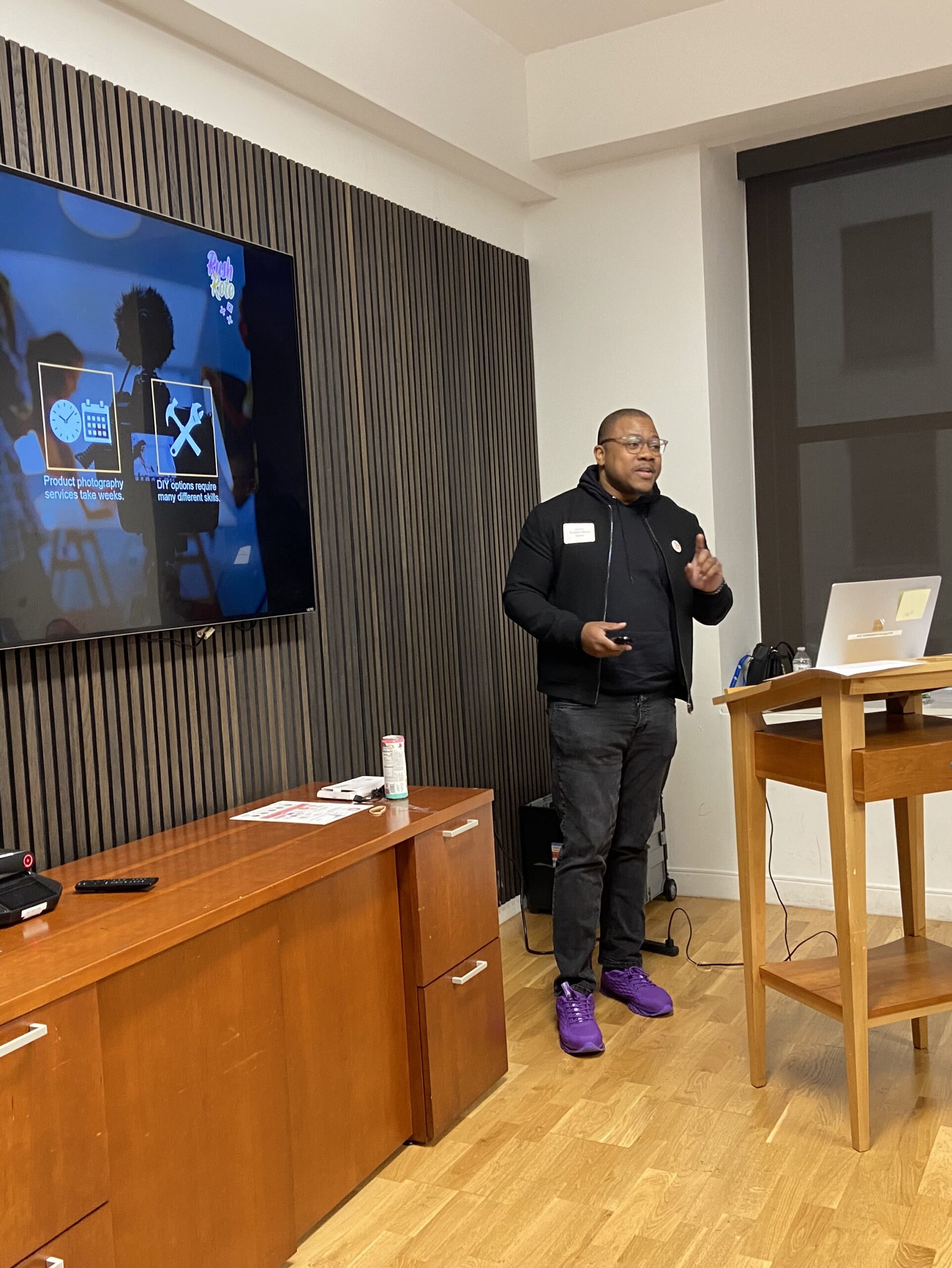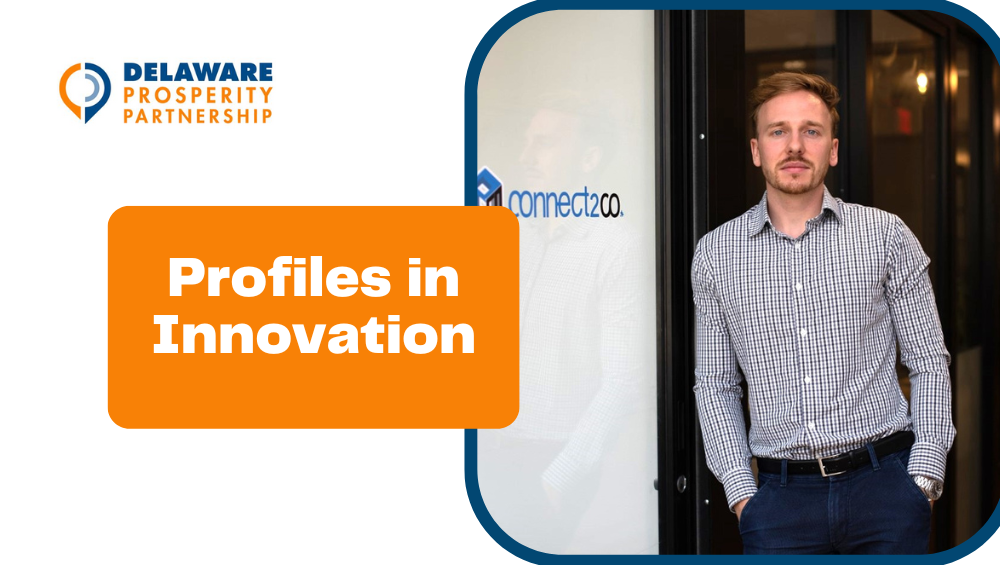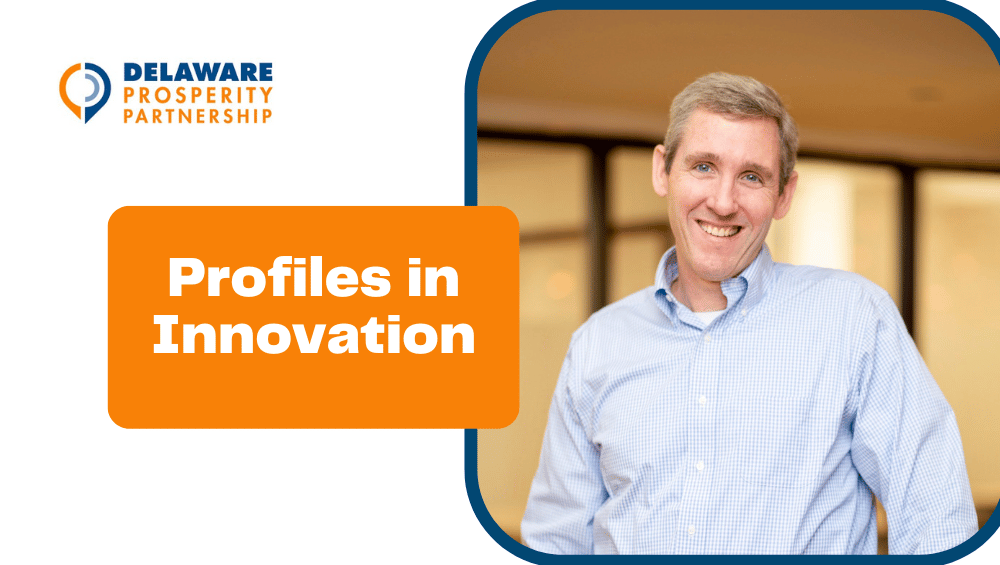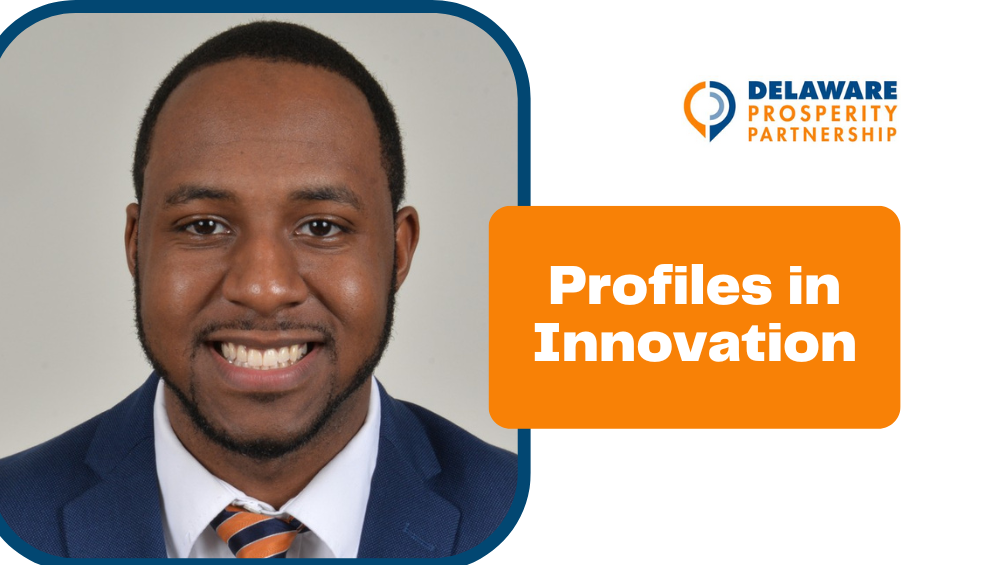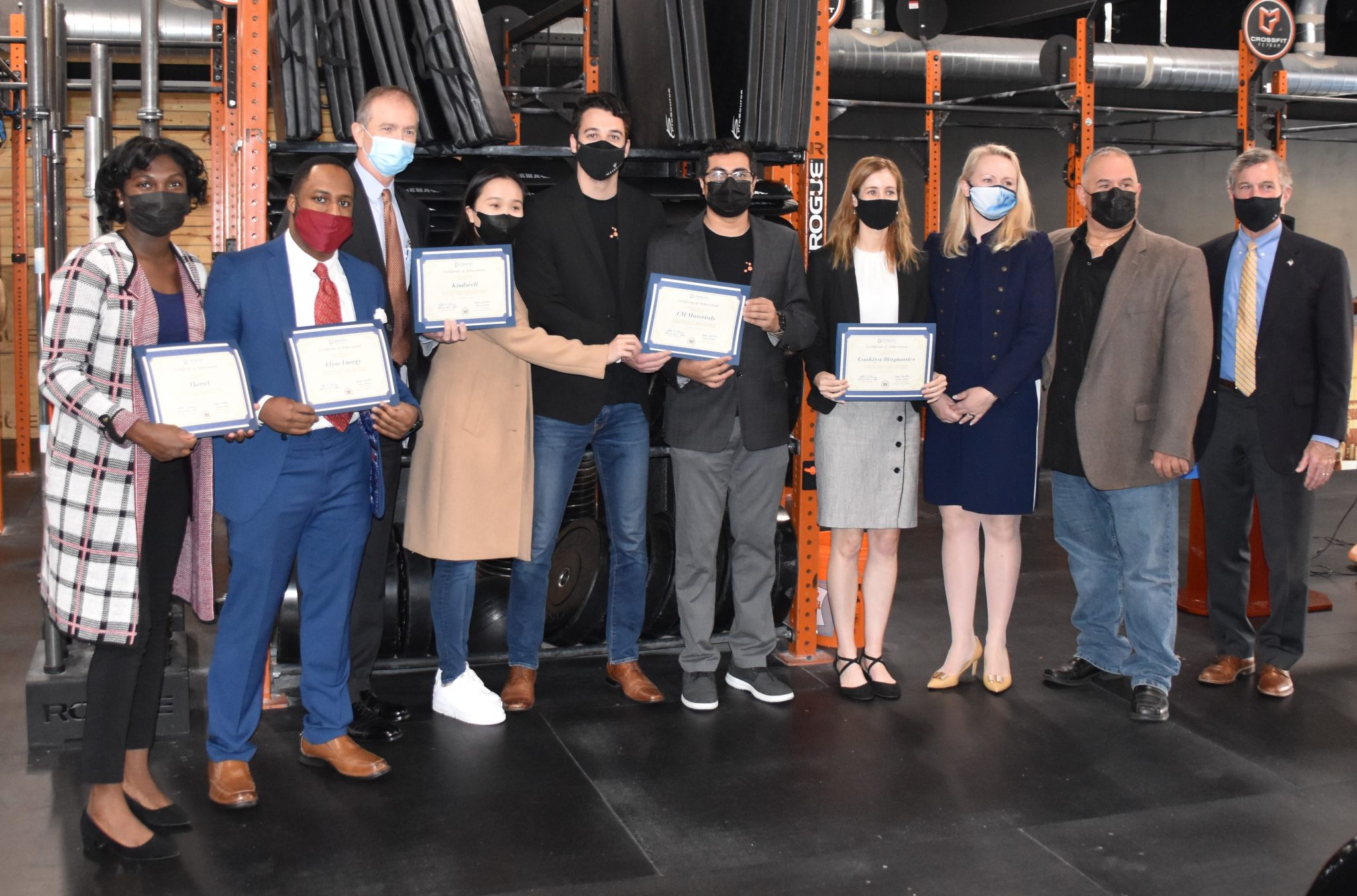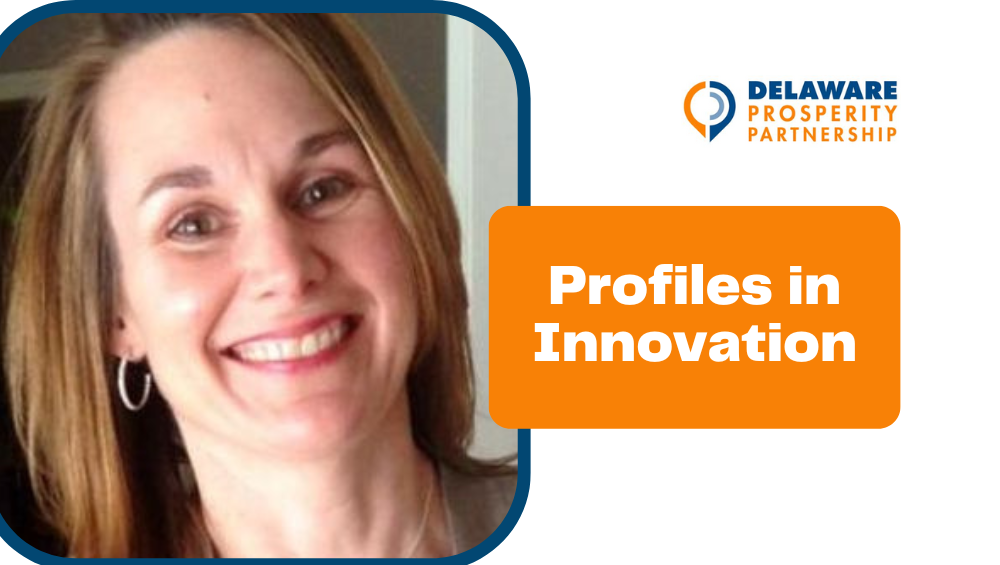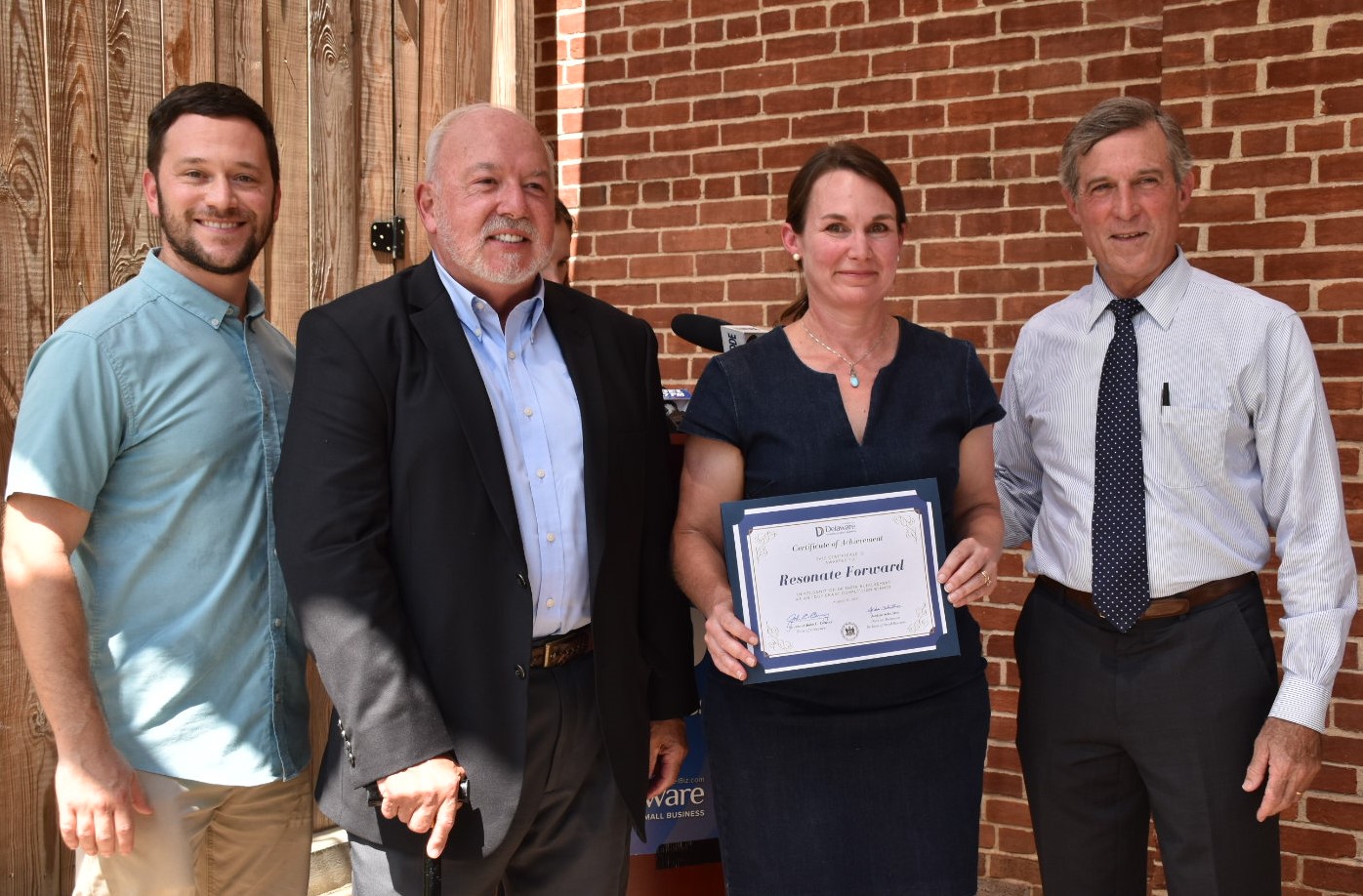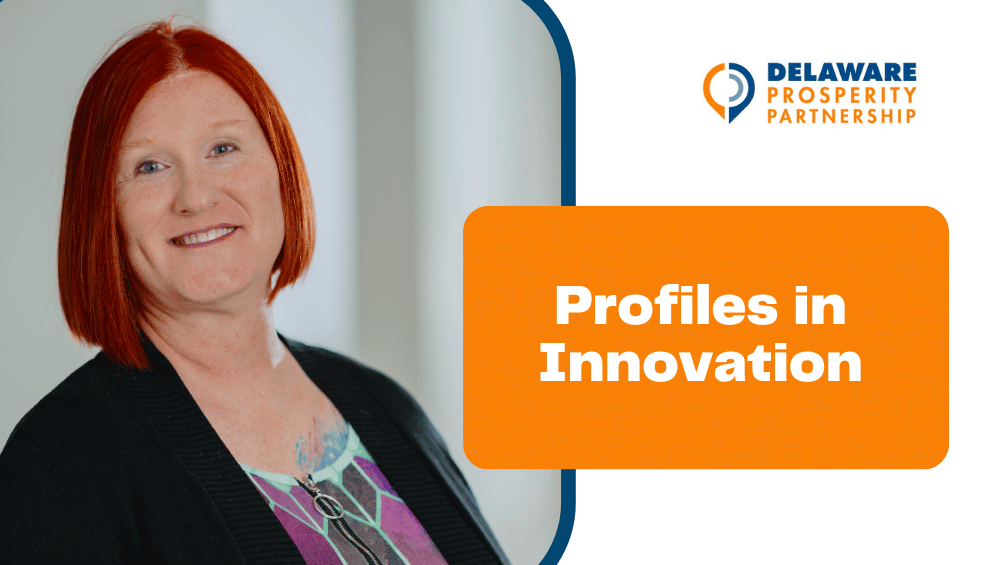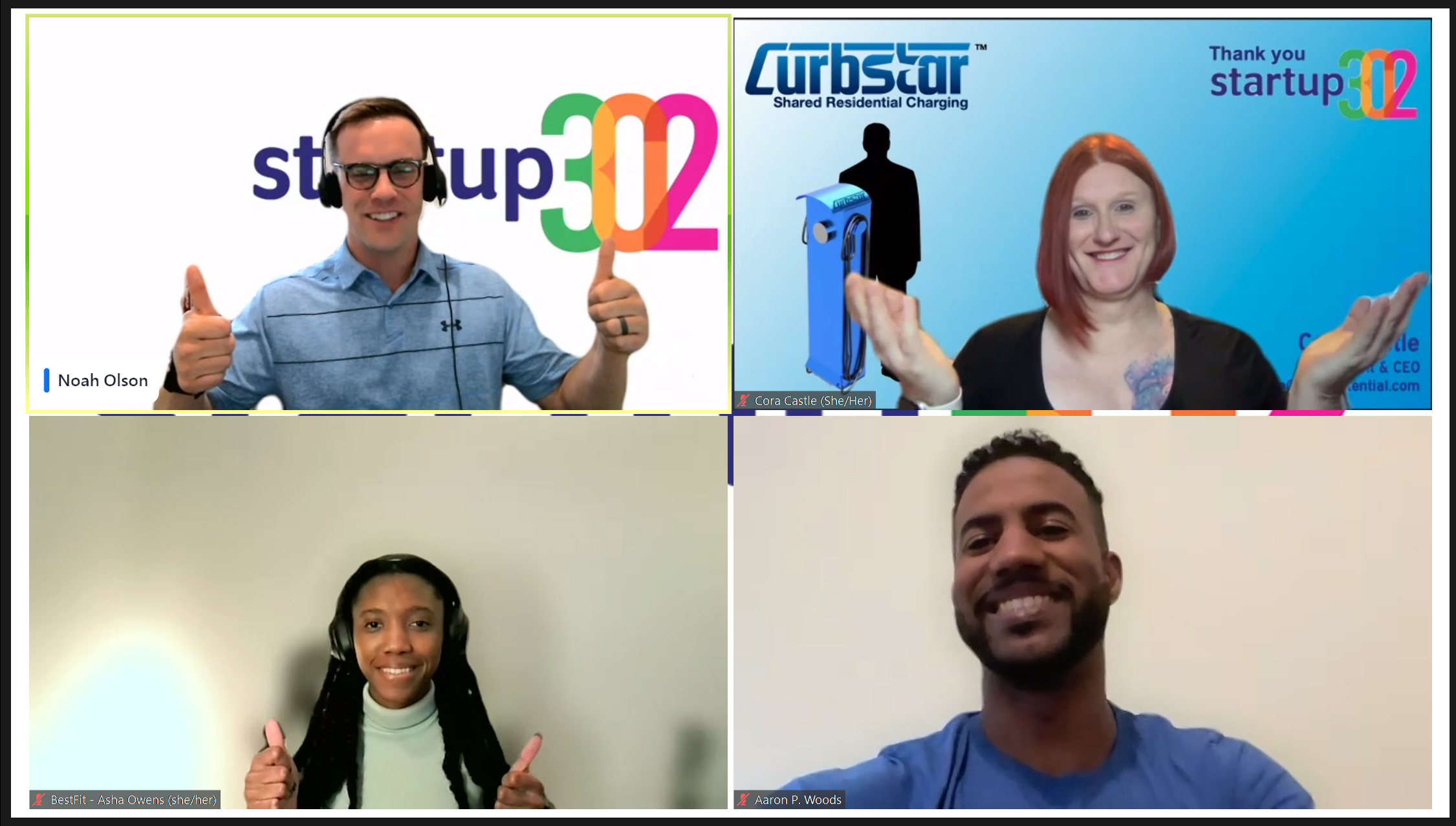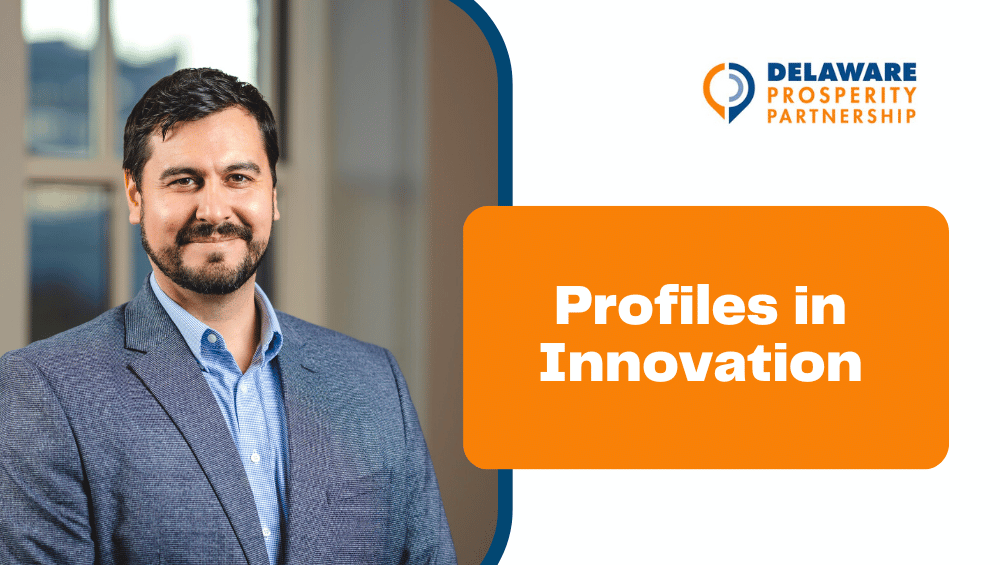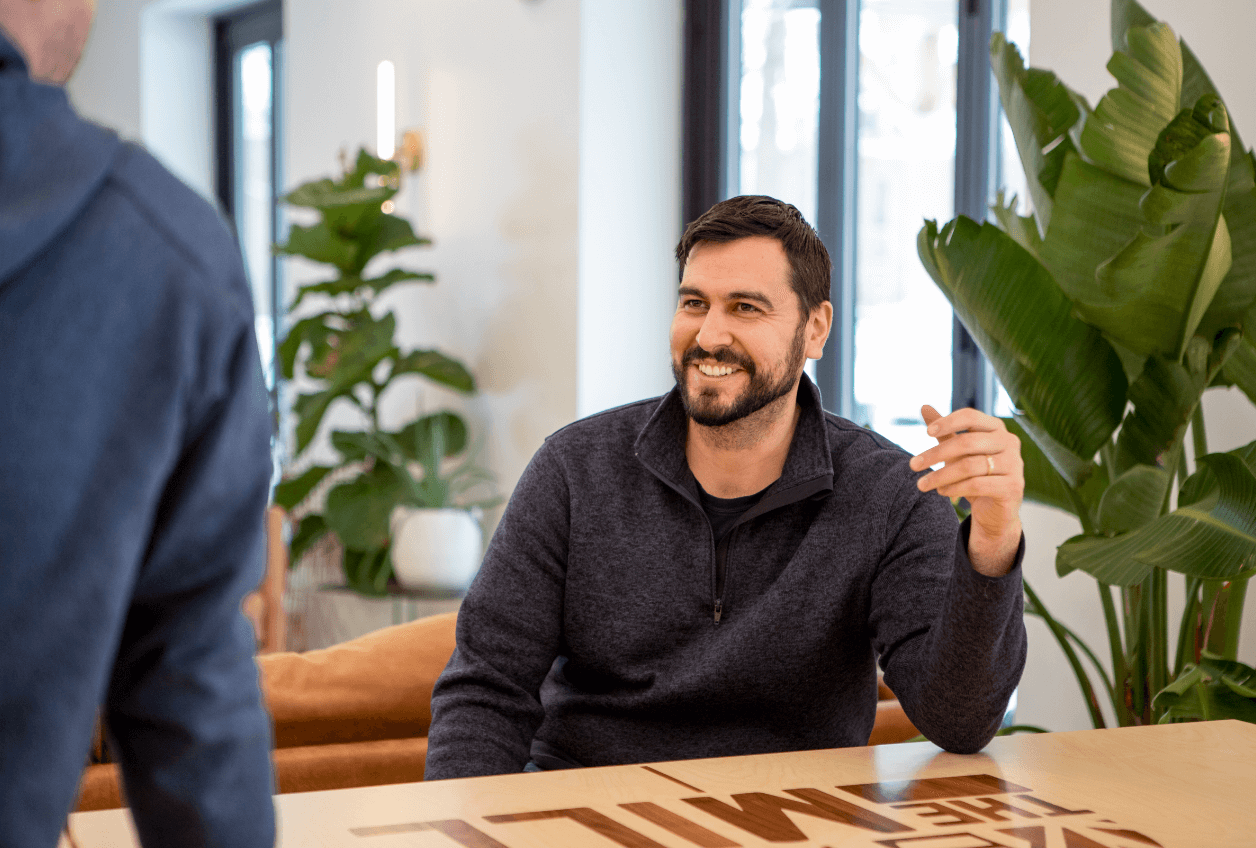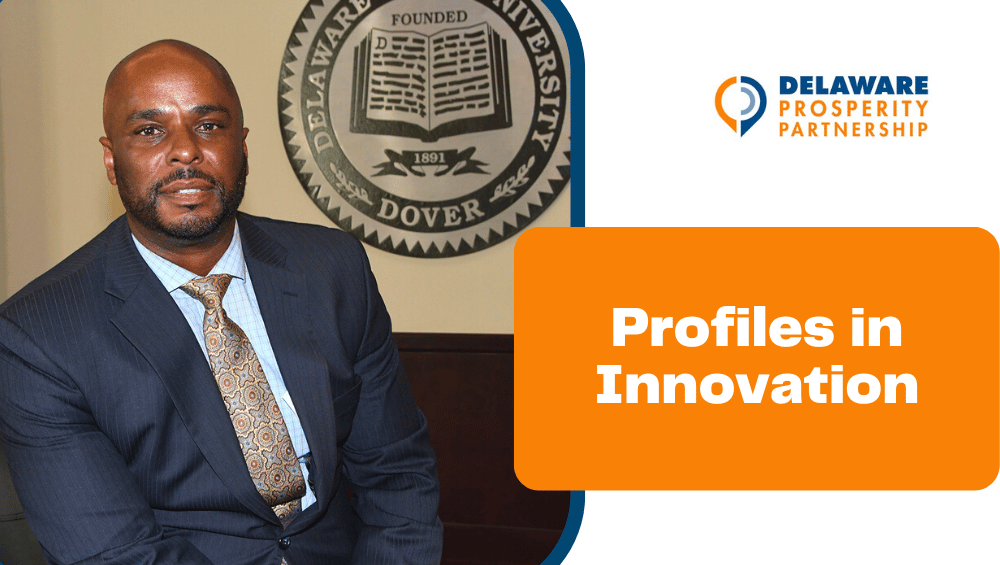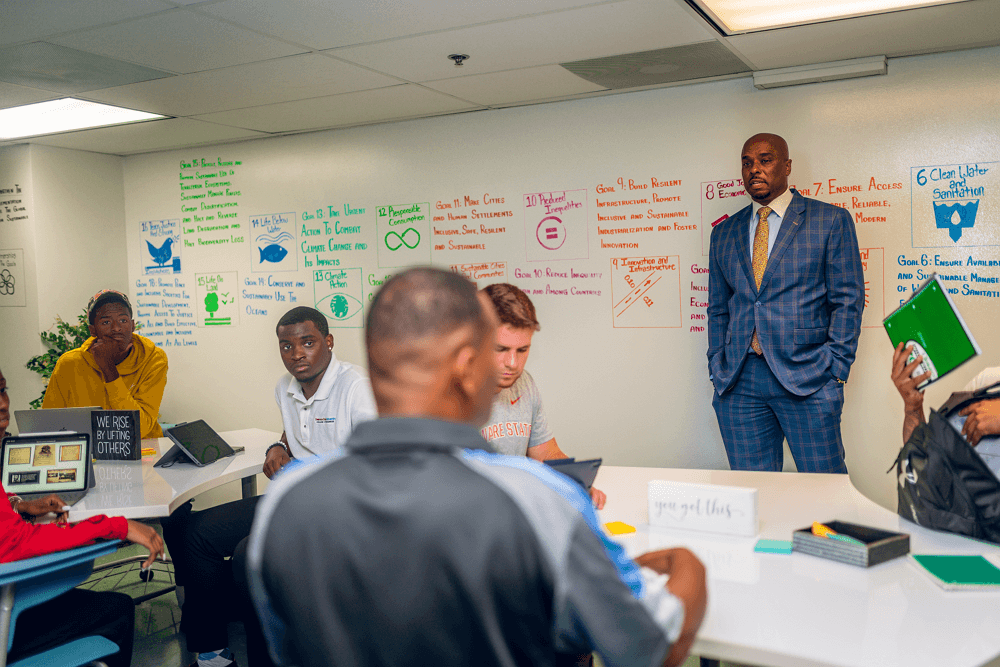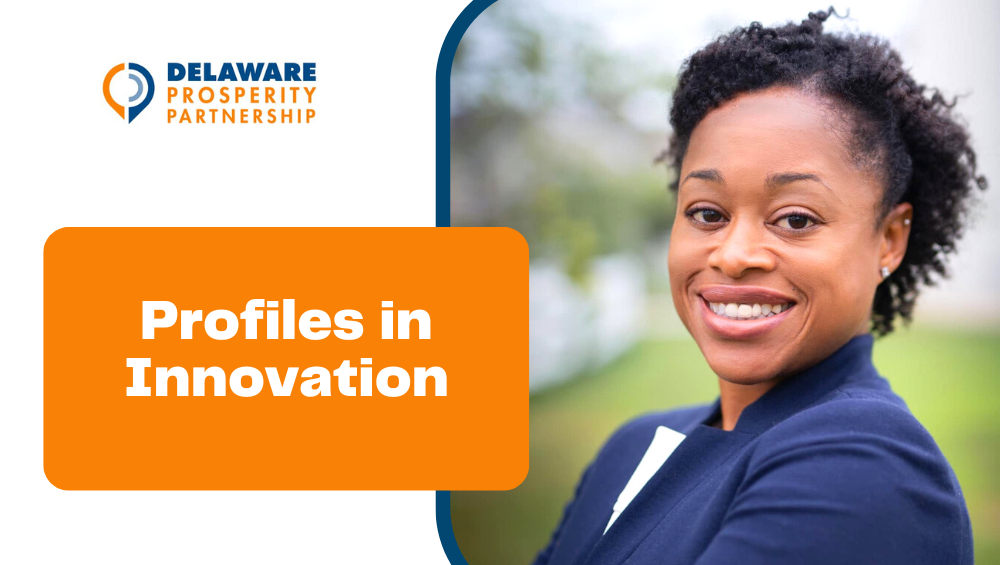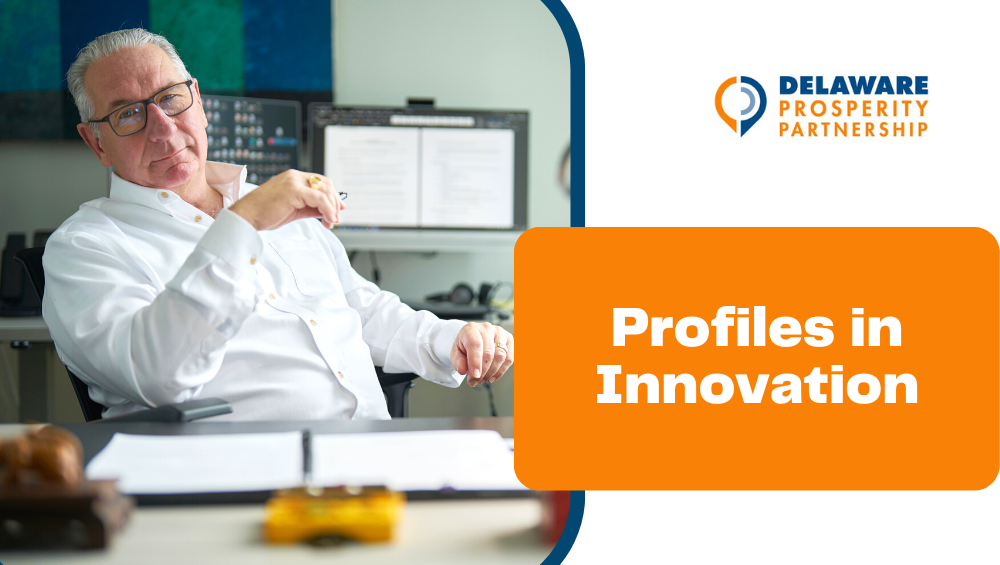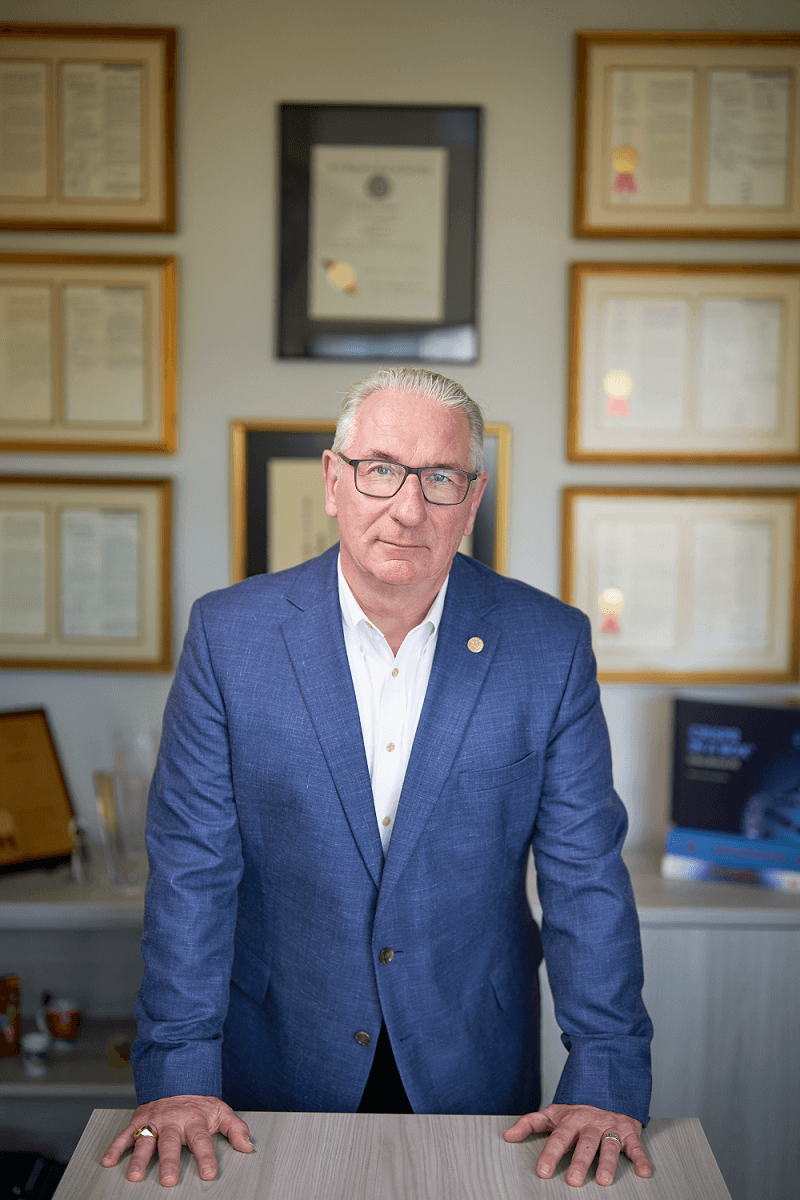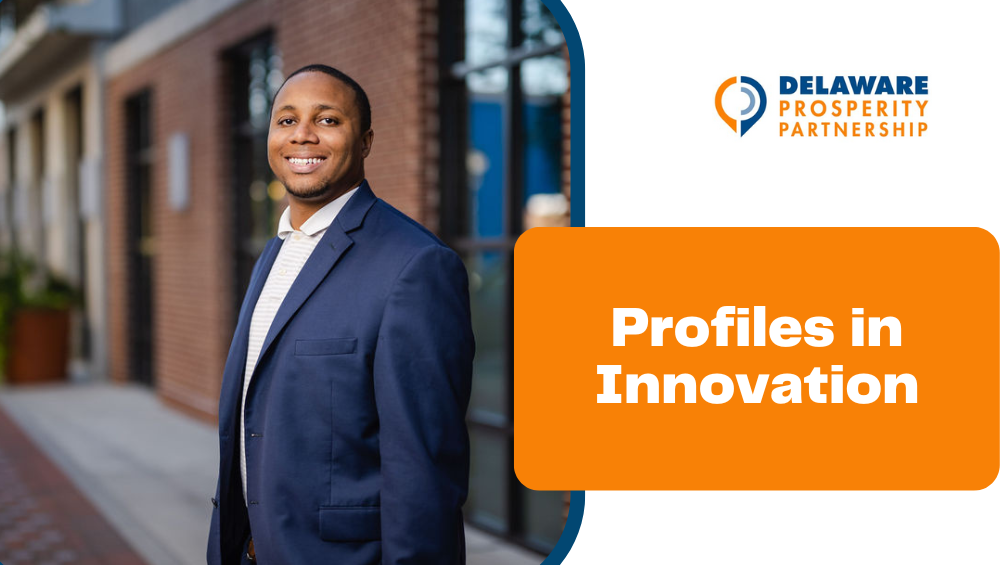Laura Randa, CEO & Chair of Toivoa
Laura Randa, CEO and Chair of Prescription Digital Therapeutics Firm Toivoa
An Ongoing Series Highlighting Delaware Innovators
The United States is facing a severe mental health crisis that disproportionately impacts people with disabilities. It’s estimated that 54 million people with disabilities are suffering from mental health disorders and, according to the Centers for Disease Control, adults with disabilities say they experience frequent mental distress nearly five times as often as those without disabilities. But mental health services are often not easily accessible, widely available or affordable.
Laura Randa witnessed first-hand how her college-age daughter, who has hearing loss, experienced increased stress and anxiety while struggling to read lips during the COVID-19 pandemic, when face coverings were mandatory and clear masks weren’t available in most classrooms. Fortunately, Randa was in a position to help.
Laura left her 30-year career in commercial leadership and C-suite positions at biotech and pharmaceutical companies, including Regeneron Pharmaceuticals and Novartis, determined to revolutionize mental health treatment for people with disabilities. Assembling a passionate team of experts in cognitive behavioral therapy, digital therapeutics and clinical psychology, Randa started Wilmington-based Toivoa and its first-in-class digital therapy platform, Rauha, a platform designed to close the treatment gap for people with disabilities living with mental illness. The 2-year-old Wilmington-based company won $27,000 in the 2023 Startup302 competition, coordinated by Delaware Prosperity Partnership (DPP).
Toivoa, a Finnish word that means “hope,” is initially targeting its efforts for people with hearing and mobility disabilities and includes dozens of accessibility functions such as color contrast, closed captions, keyboard mobility and multiple navigational options. By the end of the decade, Randa expects to hire upwards of 1,000 people and have 1,300,000 patient users on the platform.
Initiated by a healthcare professional and accessed by a unique patient code, the Rauha app provides fully-accessible, cognitive behavioral therapy – the gold standard of psychotherapy. Based on responses to a series of questions about their disabilities, patients receive adapted, personalized exercises and therapy from Dr. Samantha Gaiez, a New York City-based clinical psychologist with more than 15 years of clinical experience, and a team of psychologists specializing in people with disabilities. Every patient will be matched to a certified mental health coach who has shared living experiences with disabilities and mental illness. Together with a vibrant patient community forum, patients will receive personalized support and encouragement throughout their 12-week journey.
“We are on a mission to radically change evidence-based therapy for people with disabilities living with mental illness,” says Randa, who earned her master’s degree in public administration from the University of Delaware. “We look forward to bringing a high-growth digital therapeutic community to Delaware and collaborating with the county and state economic development teams to address critical health inequities in one of the most excluded and marginalized groups.”
Randa recently shared her thoughts on innovation with DPP.
Why is Delaware a great state to be an innovator?
I grew up in Delaware and have seen first-hand that Delaware is the home of innovative businesses, cutting-edge research and transformative ideas that are meeting and exceeding the challenges of the 21st century economy. Delaware has a large and robust ecosystem fueled by the spirit of collaboration across all stakeholders, especially government leaders, businesses and academic institutions. To successfully build an innovative digital therapeutic business in a globalized market, businesses need access to high-quality, high-tech and diverse talent. Delaware was a natural fit for Toivoa because the breadth and diversity of talent in the finance, tech, pharmaceutical and consumer industries offered in Delaware is unparalleled.
In your view, what qualities should a successful innovator have?
My father – my lifetime mentor, who was a long-time DuPont R&D researcher with 28 patents – taught me many things about being an innovator. He used to say you had to have five top skills to demonstrate as an innovator: associating, questioning, observing, networking and experimenting. These skills are fundamental when you are developing solutions to address a critical unmet need in a way that no one has ever done before. But this is just the start. As I have launched Toivoa, and throughout my career, I’ve learned that innovation is best realized by building passionate, purpose-driven, cross-functional teams and leveraging mentors who can help you “slow down, to speed up.”
What advice would you give innovators just starting?
A great entrepreneur must become an expert in their market by digging deep to understand the nuances of how innovation can have the greatest impact and make a meaningful difference. You must push yourself to continuously challenge the status quo and be open to ideas outside of your comfort zone and realm of expertise. I’ve learned that this is not just a key entrepreneurial skill, but also a very valuable life skill. Take the time to create company and product positioning and value propositions that are simple, clear and concise and that resonate across your key stakeholders. Test your concepts and products with your stakeholders at every step along your development path. Investing your time and efforts in these processes will help you build high-impact, focused communications and strategies, let you stand out in a crowded innovator market and accelerate your success.
Newsletter Sign Up
Stay Up To Date With Delaware
